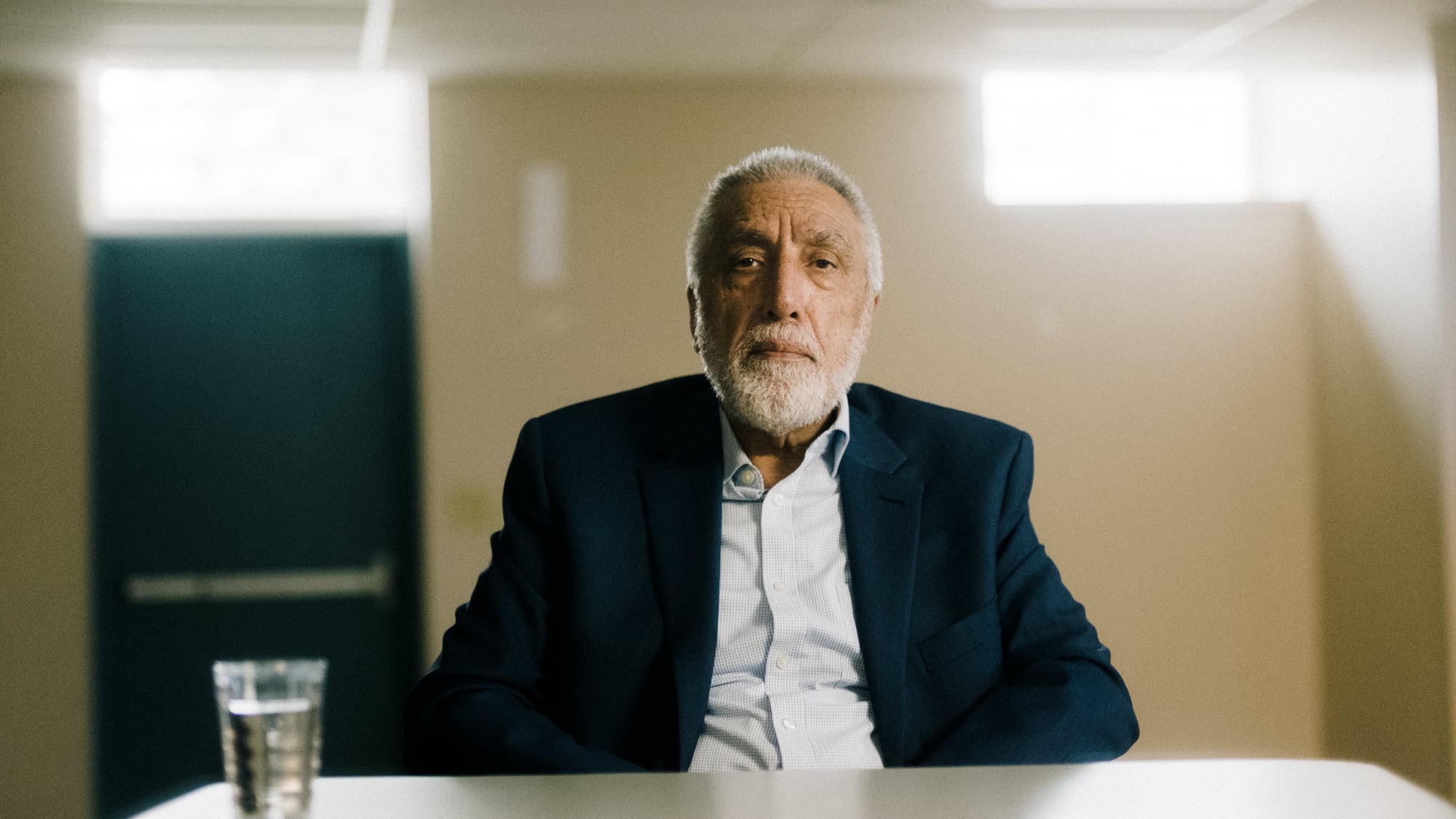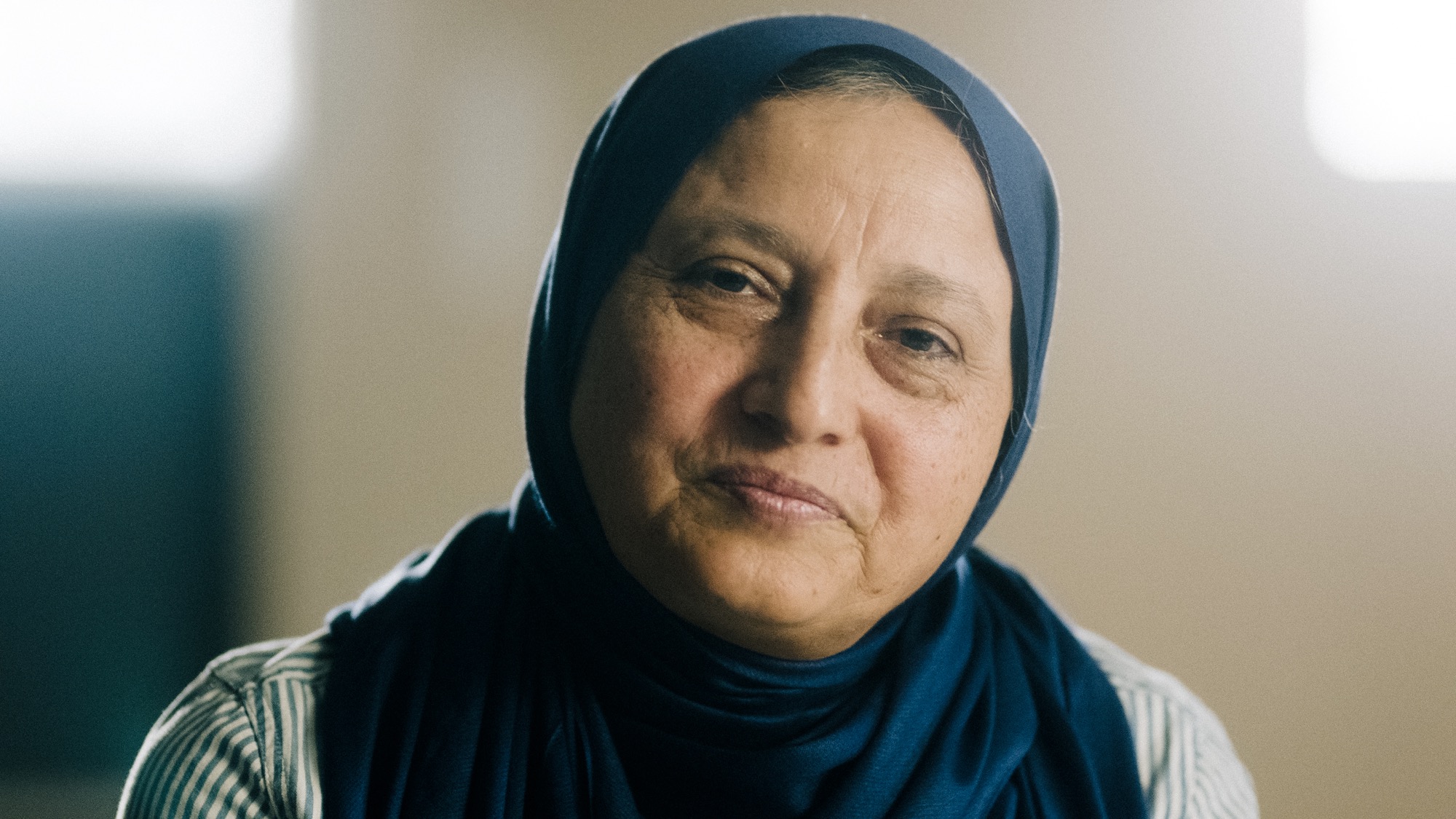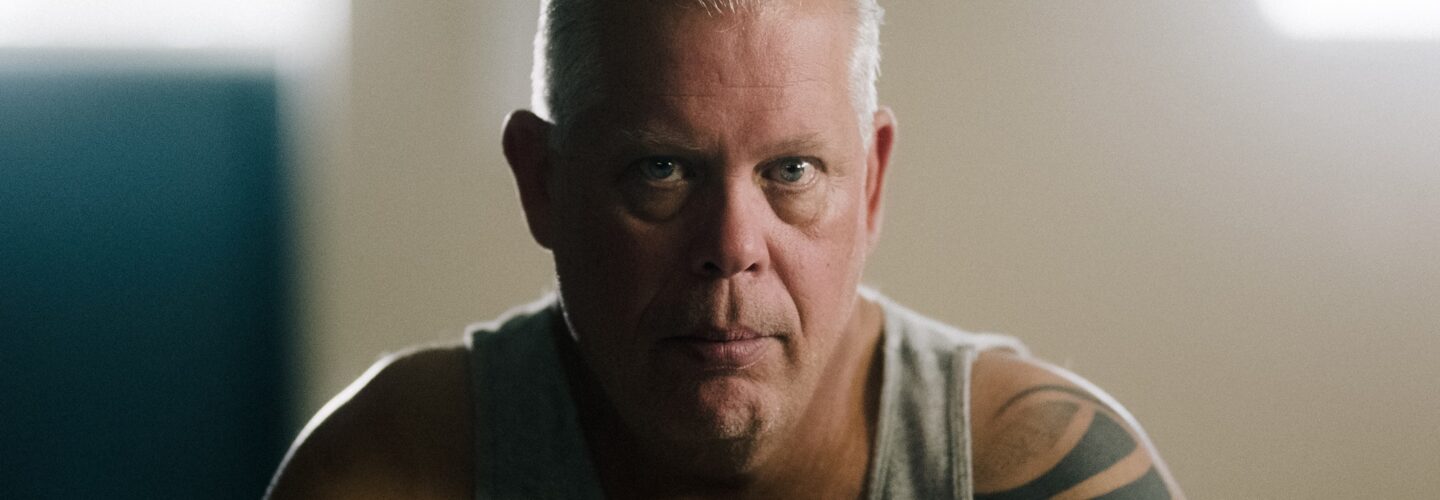
While working on his documentary series about The Secret Life of Muslims, Director Joshua Seftel came across a local news story about marine Richard “Mac” McKinney which he immediately knew he had to tell. His Oscar nominated short Stranger at the Gate tells an initially perturbing yet ultimately, incredibly inspiring tale of love overpowering hate. Mac, suffering from PTSD after years of overseas tours in the marines, knew of no way to escape the trauma and hate he felt towards Muslims and made a decision to bomb the mosque in his local community. Whilst this might come across as a horrific starting point for a documentary, the story which unfolds is one of unflinching kindness, acceptance and hope. Seftel is an established filmmaker who has honed an open and warm approach to his participants, a most effective foundation for a filmmaker drawn to telling stories of injustices with a sensitive and tailored approach. We sat down for an interview with Seftel where we discussed drawing out key insights into his subjects from moments of silence, the power of short form documentaries and how he hopes his Oscar nomination will put this uplifting story of acceptance and redemption in front of a much larger audience.
[The following interview is also available to watch at the end of this article.]
Could you please introduce Stranger at the Gate to us?
Stranger at the Gate is a documentary short nominated for an Academy Award this year and it tells the story of a US Marine who returns from combat with PTSD. He’s filled with rage, especially toward Muslims so he decides that he’s gonna bomb the local mosque in his small town in the state of Indiana. He is planning to go ahead with this bombing and ends up going to the mosque on a reconnaissance trip. He comes face to face with the congregants of the mosque and at that point, the story takes a very crazy turn.
I read that you just found this tiny article in a local newspaper. What gave you the feeling that this would make a good documentary?
At the time I was doing a series of short films about American Muslim stories. These came about from when I was a young boy growing up in upstate New York and I faced a lot of antisemitism. I was one of the only Jewish kids around and kids picked on me. They called me names and threw pennies at me to see if I would pick them up to show that Jews are cheap. Someone threw a rock the size of a brick through the front window of our home. Things like that happened in my childhood that stayed with me. I became a filmmaker in the 90s and then after 9/11, I saw my Muslim friends facing similar kinds of hate and I started making these short films about American Muslim stories.
This story was not that big a deal because they just did what they would always do. They welcomed someone who seemed like they needed help.
When I came upon this particular one, I just thought, “My God, this is a story we need right now”. This is a story about our times. It’s a story about the division in our country and in the world. It’s also a story about ways that we might be able to come together, almost like a blueprint for what could be, what is possible. I almost see it as like the future of our world. If we embrace some of these approaches and things that happen in the film, this could be a blueprint for how we can get along with each other.

It’s so important to have these stories that show how people can move away from their preconceived ideas of other groups. Were you worried that there would be any pushback in telling this story as it is such a delicate subject?
I think that there was some concern and we tried to tell the story in a very sensitive way. This story is ultimately quite uplifting and hopeful and so I think that all the people involved understood that the telling of this story was going to do good, that it was a message of hope. We need to start talking to each other, we need to start connecting with each other. We live in a time where, if you have a friend who votes for a different candidate for a different politician than you do we might stop talking to that person. We just have to find a way to connect and the actions of the characters in this film, the congregants of the mosque who greeted the marine and took him in was so game-changing and beautiful and it saved lives. I just believe that if there were more people acting the way that they acted with an open heart the world would be better.
Were they surprised when you approached them wanting to make a documentary about this?
I think so, especially the congregants of the mosque. There’s a couple that founded the mosque, Bibi and Saber Bahrami. He’s a physician in Muncie Indiana, and Bibi, his wife, is an activist in the community. When Richard McKinney, the marine, arrived at the mosque they did what they would always do, which is they welcomed the stranger. He seemed a little scary but they also saw vulnerability in him and they welcomed him with kindness. Then he actually started coming back to the mosque, the next day and the day after and started hanging around.
To them, what happened with him was almost part of their everyday life. This story was not that big a deal because they just did what they would always do. They welcomed someone who seemed like they needed help. They saw this Marine who was shaking, red in the face and looked really vulnerable and they just thought, “We need to help this guy”. So when I came to them and said we want to make a film, they were kind of surprised as it was just another day in their lives.
How did you lay the groundwork for the shoot during pre-production?
Pre-production was primarily just phone calls. It was during Covid and we did a lot of pre-interviews. The beauty of working with people like Bibi and Saber and this Islamic Center of Muncie which is where the whole film takes place is that they’re so hospitable. The story is about them welcoming a stranger and they welcomed us too. They brought us into their community, they fed us, cooked meals for us, made sure we had everything we needed and had us in their homes. Once we got into the production, it was really lovely and they were just incredible hosts.



You can feel that throughout the film and the fact that everyone in front of the camera seems relaxed and natural. You must have a real talent for bringing stories out of people.
I think doing the pre-interviews and really talking to people ahead of time, getting to know them and spending time helped. It was all on Zoom but I think you can still forge a relationship. That’s really important to me when I’m doing interviews, especially for a film like this where the interviews are such an important part of the film. I wore a microphone as well as the person I was interviewing as I wanted to capture those interactions because I knew that there’d be interesting moments. I knew that we could create moments in the interview that would be revealing and would help tell the story. There are moments where you hear my question and my voice then there’s a pause sometimes and I love those pauses. I love those moments where you get to see the person’s face, their expression and their reaction to your question because sometimes that’s more interesting than the answer they give.
I wore a microphone as well as the person I was interviewing as I wanted to capture those interactions because I knew that there’d be interesting moments.
For example, when I was interviewing Mac, one of the first things I asked him was, “How did killing people change you?” You see his expression, in fact, he doesn’t even answer the question. There’s so much emotion and he’s on camera for 10 or 15 seconds not answering the question. He drinks a glass of water, he rubs his face, he doesn’t know where to go but you learn so much about him and his character in that non-answer. I love moments like that. I love thinking about interviews as almost like potential verité moments. When you have multiple cameras and both people are wearing microphones you can really capture these interactions and I think those can be very revealing.

With that approach you must’ve had a lot of footage, how did you piece everything together in the edit?
That took a long time, the edit was several months. There was a period of time where we thought, maybe this is a feature doc. We had a lot of material and I think at some point it was over 50 minutes. When you get to that point you debate whether to go longer or shorter. We ultimately decided to go shorter and as it got shorter and shorter, it got better and better. That’s happened a few times with films I’ve made where we were at that cusp and we decided to go shorter and everything came together. It ultimately became a 30 minute film and it’s very tight, there’s nothing extra in there. It moves really fast and I think for this story that works, I really like the way it moves.
I love thinking about interviews as almost like potential verité moments.
The only extra bits we see are your aerial shots, describing the landscape and location of the mosque.
For this film we didn’t want to use reenactment, I’m not really into that. I like to give the viewer an opportunity to imagine what happened. When you don’t have footage of the moments, when you don’t have archival you have to find a way to illustrate it. I want to give the viewer agency to imagine what happened in their mind, almost as if they were listening to a podcast or radio story. The aerial shots that we used, as people are telling the story, give you a sense of the setting of the place. You’re looking down on it, you can’t quite see what’s going on down there but you know what we’re talking about is going on down there. I like to give the viewer that space so that they can imagine just what happened, what it looked like, what it felt like. I think that becomes more interesting.

Why do you like the medium of short form documentaries?
For one thing they’re easier to make, you don’t have to raise as much money. With a short you can almost just say, “I’m just gonna do this”. Usually the budget is such that you can at least get it off the ground. With a feature doc it’s a little harder, the barrier to entry budget-wise is greater. I also think the short film is really an incredible format, especially now that we can distribute things online. It used to be that you could really only see films in the movie theater or on DVD but with the internet and everything, people want shorts. I actually find that we get so many views on our short films, there really is an audience for them.
We ultimately decided to go shorter and as it got shorter and shorter, it got better and better.
I’ve had people at our screenings of Stranger at the Gate come up to me and thank me for making it short as it really works. It also leaves an opportunity for discussion. The film is a half hour so we have another 30-40 minutes to have a Q&A and that’s really exciting, it works really well. In some ways, I think it’s perfect for screenings and for classrooms and also just to watch at home on your computer. I’m into the short film format a lot, I’ve done a lot of them lately.
How do you think your Oscar nomination is going to help to open up the themes of the film for wider discussion?
When we finished the film, we first showed it to the people at the Islamic Centre where it was filmed. We wanted to make sure they liked it and that we got it right. We set up a screening and about 80 people came and gathered in the basement of the Islamic Center in Muncie, Indiana. Everyone watched the film and when the lights came up I didn’t know what people were going to think. One person stood up and said, “I wanna say one thing, I believe that every American needs to see this film”. My first reaction was a sense of relief that we got it right. The second reaction was a sense of obligation, now we’ve got to do this, which was always the intention, but now, we’ve really got to get this film out there because the message is important. The Oscar nomination is such a huge gift to this story and to its message because we’re reaching so many more people as a result of it. That’s so exciting to all of us who worked on the film, it’s a game changer.
What are you working on next?
We’re continuing to do this work with the films about American Muslims. We’re working on a new film about a 9/11 hate crime victim who was actually shot in the face and survived. It’s about his life and his transformation after having that experience so that’s gonna be the next short that we do.


